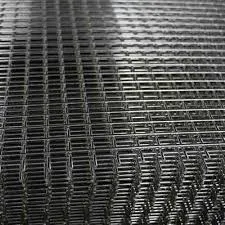-
+86 15030157877
-
sales@galvanizedmetalmesh.com
Aug . 01, 2024 06:36 Back to list
Durable and Effective Solutions for Strong and Reliable Field Fencing for All Your Needs
Understanding High-Quality Field Fencing A Essential Guide for Farmers and Landowners
In the realm of agriculture and land management, field fencing plays a pivotal role in the protection of crops and livestock. Among the various options available in the market, high-quality field fencing stands out for its durability, effectiveness, and overall value. This article explores the benefits of high-quality field fencing, the materials commonly used, installation tips, and maintenance practices to ensure longevity.
The Importance of High-Quality Field Fencing
The primary purpose of field fencing is to establish boundaries and secure areas for livestock, crops, and other resources. High-quality fencing serves multiple functions, such as preventing livestock from wandering off, protecting crops from wild animals, and marking property lines clearly. Unlike cheaper alternatives, high-quality field fencing is designed to withstand environmental stresses, including harsh weather conditions and potential impacts from animals. Investing in quality ensures that farmers and landowners save money in the long run, as they won’t need to constantly replace or repair inferior fencing systems.
Materials Used in High-Quality Field Fencing
The effectiveness of a fence largely depends on the materials used in its construction. High-quality field fencing can be made from a variety of materials, each with its own advantages
1. Woven Wire This type of fencing features strong steel wires twisted together to form a mesh. It is particularly effective for containing livestock and is resistant to wear and tear.
2. Barbed Wire Often used in conjunction with other fencing types, barbed wire adds an extra layer of security. It deters animals from attempting to break through or climb over the fence.
3. Electric Fencing While not a traditional material, electric fencing systems utilize high-tensile wire and energizers to deliver a mild shock, making it an effective deterrent for animals and intruders alike.
4. Vinyl Fencing Increasingly popular for its aesthetic appeal and low maintenance, vinyl fencing offers a long-lasting alternative for property boundaries, although its sturdiness compared to wire options may vary.
5. Wood Fencing A classic choice, wood fencing offers a natural look and can be very durable if properly treated. It may require more maintenance than other materials but can enhance the visual appeal of a property.
high quality field fence

Installation Tips for Optimal Performance
Proper installation is crucial to maximize the lifespan and effectiveness of any fencing system. Here are some tips for installing high-quality field fencing
- Plan the Layout Before installation, outline the fencing layout to ensure you cover all required areas while avoiding obstacles like trees and rocks.
- Use Quality Posts The integrity of a fencing system heavily relies on the quality of the posts used. Opt for treated wood or steel posts that can withstand weather conditions and resist decay.
- Dig Deep Post Holes Ensure that post holes are deep enough to provide stability and support. Generally, holes should be at least one-third the length of the post above ground.
- Tension the Wire Properly When installing woven or barbed wire, ensure that the wire is tightly tensioned to prevent sagging, which can lead to gaps that animals could exploit.
Maintenance to Prolong Lifespan
Regular maintenance is essential to keep high-quality field fencing in optimal condition. Inspections should be conducted routinely to identify any damage or wear. Look for rust on metal components, loose wires or posts, and signs of rot in wooden fencing. Prompt repairs will prevent minor problems from escalating into significant issues. Additionally, consider periodic treatments for wood and metal parts to enhance their resistance to weather and pests.
Conclusion
High-quality field fencing is an investment that can significantly impact agricultural productivity and land management. By understanding the materials available, the importance of proper installation, and maintenance practices, farmers and landowners can ensure their fencing systems remain effective and resilient for years to come. Ultimately, a well-constructed fence not only protects but also enhances the value of agricultural efforts.
-
Hexagonal Gabion Mesh: Durable Stone Cages for Landscaping
NewsJul.22,2025
-
Premium Black Brick Welded Mesh - High Strength & Corrosion Resistant
NewsJul.21,2025
-
AI SEO Optimizer
NewsJul.20,2025
-
High-Quality Chicken Wire Panels Leading Manufacturer & Exporter
NewsJul.08,2025
-
High-Quality Concrete Reinforcement Wire Mesh – Reliable Steel Mesh Manufacturers & Exporters
NewsJul.08,2025
-
High-Quality Aluminum Expanded Mesh Leading Manufacturers & Exporters
NewsJul.08,2025



